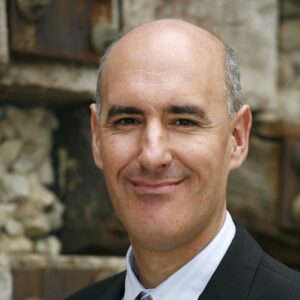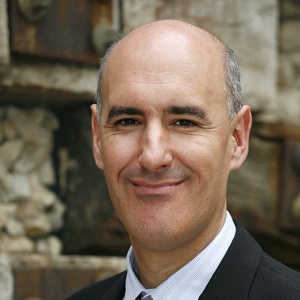Podcast: Play in new window | Download
Subscribe: RSS
 While none of us could have predicted that the arrival of a global pandemic would fundamentally reshape our lives in 2020, stunning research by Wharton Business School professor, Mauro Guillén, shows that a series of once-in-a-lifetime events is about to profoundly reshape our culture, economy and the world by the end of this decade. And at least this time, we’re being given some advance notice and have a little time to prepare.
While none of us could have predicted that the arrival of a global pandemic would fundamentally reshape our lives in 2020, stunning research by Wharton Business School professor, Mauro Guillén, shows that a series of once-in-a-lifetime events is about to profoundly reshape our culture, economy and the world by the end of this decade. And at least this time, we’re being given some advance notice and have a little time to prepare.
The Financial Times recently named his new book, 2030: How Today’s Biggest Trends Will Collide and Reshape the Future of Everything, one of its 2020 Books-of-the-Year. And it’s already become a Wall Street Journal bestseller.
By 2030, Guillén shows that we’ll be living in a society where there are more robots than human workers, where India and China become the biggest drivers of the global economy, where the middle-class in Asia and Sub-Saharan Africa outnumber the US and Europe combined, where Baby Boomers and people over age sixty reshape the business landscape and where more global wealth will be owned by women than men.
As discussed in this podcast, Guillén believes the only way to truly understand the coming global transformation – in addition to its myriad impacts – is to think laterally. That is, using “peripheral vision,” or approaching problems creatively – and from unorthodox points of view.
Rather than focusing on a single trend, he encourages us to consider the dynamic interplay between a range of forces that will converge on a single tipping point – 2030 – that will be, for better or worse, the point of no return.
Faced with cataclysmic changes coming our way, we now must revolutionize how we think and respond. The good news is that Mauro Guillén is remarkably skilled at synthesizing an understanding of both the trends and all of their likely consequences. And he shares highly informed guidance on how you can and should prepare for all the societal change that’s about to come.
Since this podcast was recorded, Mauro was named the Director of Cambridge University’s Judge Business School.

